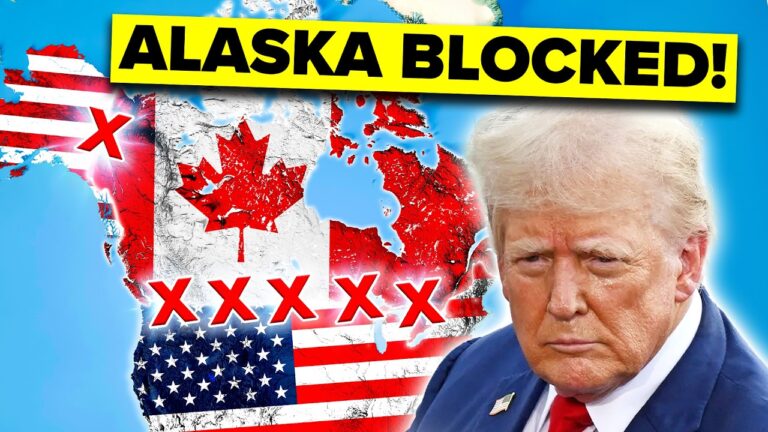Video at the bottom!
The situation between the U.S. and Canada escalated significantly when former President Trump imposed tariffs on Canadian goods. Contrary to his expectations of minimal backlash, Canada retaliated forcefully, targeting U.S. access to Alaska as a key leverage point. With a vast territory of 663,268 square miles, Alaska is geographically isolated from the contiguous U.S. and relies heavily on its connections through Canada for transport and trade.
Alaska’s only land access routes to the continental U.S. run through Canada, specifically British Columbia, which has become crucial for U.S. truckers transporting goods to Alaska. The impending imposition of tolls on these routes by British Columbia’s Premier, David Eby, is a direct response to the tariffs and represents a symbolic stand against U.S. trade pressures. The repercussions would inflate transportation costs significantly for goods entering Alaska, potentially causing logistical nightmares and shortages of essential supplies like fresh produce and oil.
Furthermore, although truck traffic heading to Alaska isn’t as robust as it is in the Lower 48 states, it remains vital for the state’s economy. The proposed tolls might add financial burdens but highlight a larger sentiment in Canada about standing up against U.S. economic policies.
However, the implementation of these tolls faces legal and logistical challenges, particularly due to an existing treaty that prohibits Canada from imposing tolls on highways vital for the transport of goods between the U.S. and Alaska. This treaty complicates British Columbia’s plans and emphasizes the need for a careful balancing act in addressing trade tensions without violating international agreements.
In response to U.S. actions, Canadian towns and provinces are not sitting idly. Some residents have suggested punitive measures against Alaska, including banning Alaskan athletes from events and jokingly suggesting Donald Trump Jr. could be barred from entering Canada. These actions illustrate the resolve within Canada to push back against U.S. tariffs and assert its rights.
The hypothetical implications of a complete blockade of Alaska by Canada further illustrate the complexities of this relationship. If Canada chose to close essential transport routes, the consequences would ripple through Alaska, affecting everything from food supplies to fuel. With over 90% of cargo shipped to Alaska arriving via sea routes, any disruption could lead to dire economic consequences for both states. The potential fallout might not only be limited to Alaska but would also impact Canadian businesses and communities relying on that trade.
Ultimately, while Canada possesses significant leverage in this situation, the need for cooperation between the two countries remains vital. A full blockade could lead to economic turmoil for both sides, with communities bearing the brunt of trade interruptions. As tensions continue to rise over tariffs and trade policies, the future of U.S.-Canada relations will likely depend on diplomatic solutions that avoid escalation into more severe retaliations. The dialogue around tolls, treaties, and trade serves as a reminder of the interconnectedness between Alaska and Canada, and the need for stable relations moving forward.


